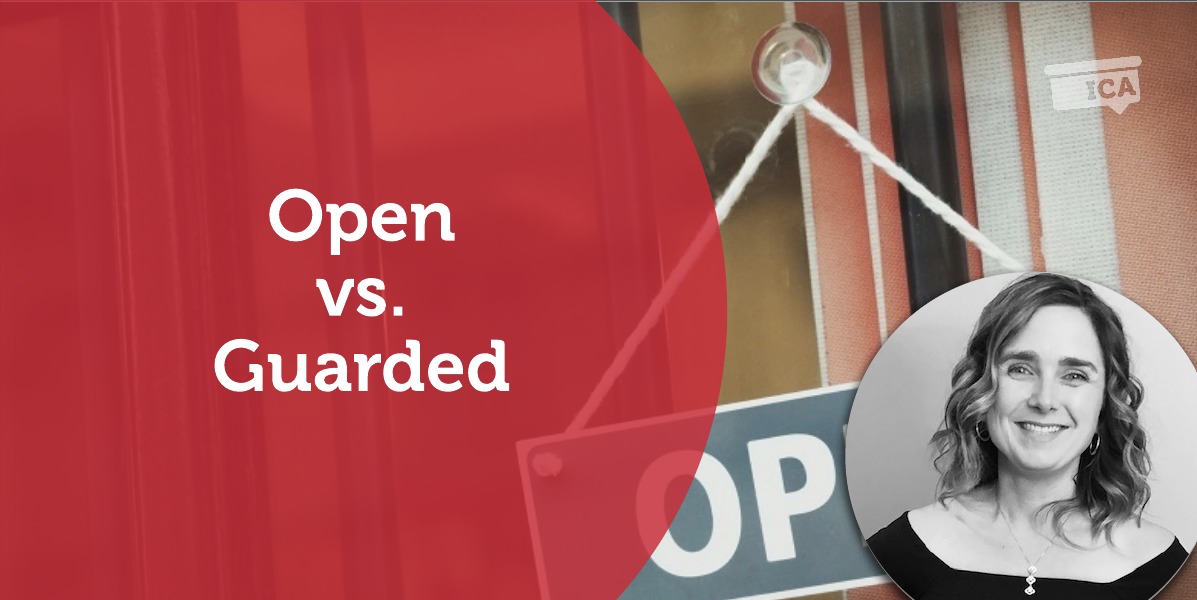 A Coaching Power Tool Created by Sarah Viana
A Coaching Power Tool Created by Sarah Viana
(Life Coach, UNITED STATES)
Open vs. Guarded: Coach & Client Relationship
Over time I have become aware that each individual uniquely navigates the topic they bring to coaching. Clients oftentimes inadvertently begin more guarded, initially focusing on sharing detailed recaps of situations and conversations. They often tend to gravitate to the next steps that are grounded within their comfort zone. Through pondering questions deeper reflections and awarenesses surface. This opening up creates an environment for thoughts, feelings, beliefs, and values to freely flow.
Imagine embarking on a nautical journey and exploring only what is in your initial line of sight. This journey still has purpose and experiences are gained, though there is so much more to benefit from discovering! Taking this journey with a commitment to being open is like steering that ship out beyond the horizon line to seek to explore the possibilities and embracing what comes next.
The amount of vulnerability that a client exercise is influenced by a variety of factors, unique to the individual. These can vary from the significance of the topic to the individual’s personal patterns and habits to their willingness to embrace authentic living. Exploring an individual’s drive to extend beyond their comfort zone, teetering toward exercising openness rather than being guarded, transforms what is explored and ultimately what develops into action.
What influences being open vs. guarded?
To begin let’s look at the definitions of open and guarded.
Open is defined as 1) free in expressing one’s true feelings and opinions 2) to take the first step in (a process or course of action).
Guarded is defined as 1) cautious 2) circumspect (careful to consider all circumstances and possible consequences)
Next, let’s take a look at the following themes:
When these are present where are you on this continuum?
Open <——————————————————————————————————-> Guarded
In reflecting about having been coached and being a coach for someone, the value and presence of these themes have yielded a noticeable impact—a feeling of empowerment to consciously choose to be open. The combination of these values cultivates a strong foundation of trust and vulnerability in the coaching relationship. My wholehearted commitment to my clients is to create a supportive space for them to openly explore, stumble, rise, and celebrate. It is a privilege to be on this journey with clients experiencing them intentionally placing deliberate living at the forefront —living by design rather than in default mode.
Owning our own story can be hard but not nearly as difficult as spending our lives running from it.
Embracing our vulnerabilities is risky but not nearly as dangerous as giving up on love and belonging and joy the experiences that make us the most vulnerable.
Only when we are brave enough to explore the darkness will we discover the infinite power of light?
Dr. Brené Brown
Self Reflections About Open vs. Guarded:
I encourage you to start with taking 15 minutes a few times this week to capture your thoughts and feelings around open vs. guarded.
In pausing to reflect you are taking a moment to calibrate and confirm why you make the choices that you do. Deliberate living starts with making a conscious choice of living a life that reflects who you are at the core, knowing your personal values, and openly embracing this for YOU! In doing so you will then be able to genuinely give to the individuals and the aspects of your life that are most important to you.
Reflections on Open vs Guarded:
How does open vs. guarded show up in your daily life?
How does open vs. guarded align with your personal values?
Reflections on Guarded:
Reflection on Open:
With This Awareness:
To know thyself is the beginning of wisdom.- Socrates
If you are interested in learning more about the value of self-awareness and reflection check out this article, Positive Psychology: What Is Self-Awareness and Why Is It Important? + 5 Ways to Increase It
References:
Merriam-Webster. Merriam-Webster Online Dictionary, https://www.merriam-webster.com. Accessed 2020.
Brown, Brené. he Gifts of Imperfection: Let Go of Who You Think You’re Supposed to Be and Embrace Who You Are. 1 ed., Hazelden Publishing, 2010.
Ackerman, Courtney E. “What Is Self-Awareness and Why Is It Important? [+5 Ways to Increase It].” Positive Psychology, 2020. positivepsychology.com, https://positivepsychology.com/self-awareness-matters-how-you-can-be-more-self-aware/.
International Coaching Federation. “Core Competencies.” ICF, https://coachfederation.org/core-competencies. Accessed 2020.